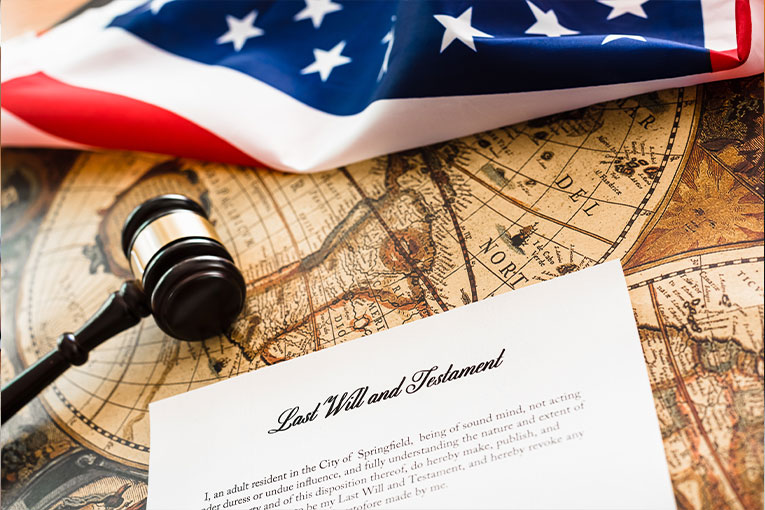Creating a Last Will and Testament in Colorado
A last will and testament is one of the most important documents in an estate plan. It provides legally binding instructions about how your property should be distributed after death and allows you to appoint trusted individuals to carry out your wishes. In Colorado, wills are governed by the Colorado Probate Code, codified at Colorado Revised Statutes section 15-11-501 and following.
Without a valid will, your estate will be distributed according to Colorado’s intestacy laws. These statutes create a fixed order of inheritance that prioritizes your spouse, children, parents, siblings, and other blood relatives. While this system ensures that assets eventually pass to someone, it does not consider your personal wishes, family dynamics, or special circumstances.
For example, if you are unmarried but have a long-term partner, that partner will not inherit anything under intestacy law. Instead, your assets may pass to distant relatives you have little or no contact with. Similarly, if you have children from a previous marriage, intestacy may divide your estate in ways that create tension between your current spouse and children.
A properly drafted last will and testament allows you to take control of these decisions. It ensures that your property is distributed according to your own intentions, avoids conflicts among surviving family members, and provides clarity and peace of mind to those you leave behind.
Working with a last will and testament lawyer also allows you to address more than just property distribution. Your will can appoint a personal representative to handle your estate, name guardians for minor children, and provide instructions for matters that are unique to your family. These decisions are too important to leave to chance or to a generic form that may not comply with state law.
At Anzen Legal Group, we help individuals and families across Fort Collins, Windsor, and Northern Colorado create wills that reflect their wishes and comply with Colorado’s legal requirements. For a general overview of wills, please visit our primary wills page.
If you would like help preparing a last will and testament that protects your legacy and respects your wishes, we invite you to call our office at 970-893-8857 to schedule a consultation with an experienced Fort Collins last will and testament attorney.
FAQs About Last Wills and Testaments in Colorado
What makes a will valid in Colorado?
To be valid, a will must generally be in writing, signed by the person creating it (the testator), and witnessed by at least two individuals who saw the testator sign or acknowledge the will. Colorado also recognizes holographic wills if the material portions are in the testator’s handwriting and the document is signed. These rules are set out in C.R.S. § 15-11-502.
How much does it cost to hire a last will and testament lawyer?
The cost varies depending on the complexity of your estate and whether your planning needs go beyond a simple will. Some people need only a straightforward will that directs property to a spouse or children, while others require more detailed provisions. At Anzen Legal Group, we offer transparent, flat fee pricing for wills and packages that may also include durable powers of attorney and other essential planning documents.
Can I make my own will in Colorado?
Yes, Colorado law allows individuals to write their own wills, including holographic wills. However, self-prepared wills are often incomplete or improperly executed, which can cause delays, disputes, or even invalidation in probate court. Working with a lawyer helps ensure your will meets all legal requirements and minimizes the risk of challenges.
What happens if I die without a will in Colorado?
If you pass away without a valid last will and testament, you are considered to have died “intestate.” In that case, your estate will be distributed according to Colorado’s intestacy statutes. These laws establish a strict order of inheritance that may or may not match your personal wishes.
Any part of your estate not passing to a surviving spouse or registered designated beneficiary will go to other heirs in the following order:
- If a deceased individual has surviving children or other descendants, the estate is divided among them in equal shares within each generation.
- If the decedent has no descendants but has one or more surviving parents, the estate is divided between the parents. If only one parent survives, that parent inherits.
- If a decedent has no descendants or parents but is survived by siblings or the children of siblings, they inherit the estate.
- If there are no descendants, parents, or siblings, the estate passes to the grandparents or, if they are deceased, to aunts, uncles, and cousins.
- If no qualifying heirs survive a decedent, the estate will ultimately pass to the State of Colorado.
Because intestacy law follows a strict order of inheritance, close individuals such as unmarried partners, stepchildren, or friends will not receive anything unless you create a valid will.
Can I change my last will and testament?
Yes. Colorado law allows you to amend or revoke your will at any time as long as you have legal capacity. Changes can be made through a codicil, which is a formal amendment, or by preparing an entirely new will that revokes the prior one. It is wise to review your will every few years and after major life events such as marriage, divorce, or the birth of a child.
What is considered legal capacity in Colorado?
In Colorado, legal capacity to make a will means that the person creating the will (the testator) is of sound mind and at least 18 years of age.
Colorado law requires that, at the time the will is made, the testator must:
- Understand the nature of the act of making a will (that they are creating a legal document that will control what happens to their property after death).
- Know the general nature and extent of their property (they do not need to know every asset in detail, but they must have a reasonable awareness of what they own).
- Recognize the natural objects of their bounty (meaning they understand who their closest relatives or likely heirs are, such as a spouse, children, or parents).
- Be able to relate these elements together in order to form a coherent plan for how property will be distributed.
This standard of capacity is relatively low compared to other legal contexts. Even someone experiencing illness, advanced age, or diminished mental health may still have capacity if they can meet the above elements at the time the will is executed.
In practice, disputes about capacity often arise in probate when heirs claim the testator did not fully understand what they were signing or was under undue influence. However, having a lawyer involved in preparing and executing a will helps create evidence that the testator had the required capacity.
Can a will be contested in Colorado?
Yes. A will may be challenged in probate court on grounds such as lack of capacity, undue influence, fraud, or failure to meet statutory requirements. Having a lawyer prepare and properly execute your last will and testament greatly reduces the likelihood that a challenge will succeed.
What areas do the Last Will and Testament Lawyers at Anzen Legal Serve?
We serve clients throughout Northern Colorado, including Fort Collins, Windsor, Loveland, Greeley, Longmont, Timnath, Wellington, Johnstown, Berthoud, Severance, Eaton, Laporte, and nearby communities across Larimer and Weld Counties.
Protect Your Family and Your Legacy – Schedule A Consultation With A Dedicated Fort Collins Last Will and Testament Lawyer.
A last will and testament is more than a legal form. It is your voice in one of the most important transitions your family will experience. By creating a valid will, you take control of your estate, reduce stress for your loved ones, and ensure your legacy is preserved according to your wishes.
The attorneys at Anzen Legal Group are ready to help you create a customized last will and testament that reflects your values and meets Colorado’s legal standards. Call Anzen Legal Group at (970) 893-8857 to schedule your consultation with a last will and testament lawyer serving Fort Collins, Windsor, and Northern Colorado.





